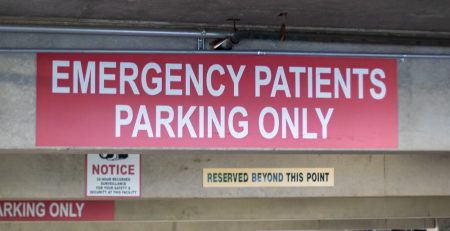Which ten things should you not do in your workers’ compensation case?

Iowa Injuries need legal help
Navigating a workers’ compensation case can be complex, and certain actions or decisions can potentially harm your case or jeopardize your eligibility for benefits. Here are ten things you should avoid doing in your workers’ compensation case:
- Delay Reporting Your Injury: Promptly report your workplace injury to your employer as soon as it occurs. Failing to report the injury promptly can raise questions about the legitimacy of your claim and may result in denial of benefits. Reporting to your supervisor is the same as reporting to your employer. Then make a note of the supervisor’s name along with the date and time when you reported it to the supervisor. This is important because there is a time limit when an injury must be reported. When you report it be specific about the time, date, place and how you were injured. This same description needs to match up with what you tell the doctors. Doctors take a history and that history needs to reflect an accurate description of the injury event. Take the time to be consistent with this description.
- Fail to Seek Medical Treatment: Even if your injury seems minor, it is essential to seek medical treatment promptly. Delaying medical care can exacerbate your condition and weaken your case by allowing the insurance company to argue that your injury is not severe enough to warrant benefits which includes referral to a doctor. Most work comp programs place the employer, their insurer, and the insurer’s staff in charge of your medical care and treatment. The seriousness of your injury matters.
- Ignore Your Doctor’s Advice: Follow your doctor’s treatment plan and recommendations diligently. Ignoring medical advice or failing to attend appointments can undermine your credibility and give the impression that your injury is not as serious as claimed. It can also create a false impression that you might be lying or exaggerating about the injury event. This is true for the insurance representatives and for the medical personnel who are treating you. And let us face it, if the doctor does not believe you were seriously injured, the reports will not be favorable. Be serious about your claim. And be patient.
- Misrepresent Your Symptoms or Limitations: Be honest and forthcoming about your symptoms, limitations, and the impact of your injury on your daily activities. Exaggerating or misrepresenting your condition can damage your credibility and jeopardize your claim.
- Return to Work Prematurely: Returning to work before you are medically cleared to do so can exacerbate your injury and prolong your recovery. Follow your doctor’s recommendations regarding when it is safe to return to work, and avoid rushing back prematurely. And when you return to work it is not unusual for the supervisors to test your restrictions. Some even outright ignore the medical restrictions on a return to work. But, you cannot, you have to work within the doctor’s restrictions. Do not try to be a hero and exceed the limitations for a return to work. This is all part of your healing process and the doctor’s plan to get you back to full employment.
- Discuss Your Case on Social Media: Refrain from discussing your workers’ compensation case on social media or posting updates about your activities that could be misconstrued by the insurance company. Your posts could be used as evidence to dispute the severity of your injury or the validity of your claim. There is nothing more annoying for a lawyer to find out you have posted vacation photos on your Facebook page following a work injury. “I cannot work, but I can fly to Florida, enjoy Spring Break, jet ski, run on the beach, and tour Disney World, but working is too much.” Some times it is as simple as this. Your wrist is injured, but those photographs of you shooting a shotgun or jumping a snowmobile over snowdrifts, just do not tell the same story. It is important to always think about the impression you are creating and how it can be used against you.
- Miss Deadlines for Filing Claims or Appeals: Adhere to all deadlines for filing workers’ compensation claims, appeals, or other required documentation. Missing deadlines can result in the denial of benefits or the forfeiture of your right to pursue compensation. This is more important for your lawyer, but it goes without saying you first have to have hired the right lawyer, one with sufficient experience to know what to do and when to do it.
- Fail to Keep Records and Documentation: Keep detailed records of all medical treatment, expenses, correspondence with the insurance company, and any other relevant documentation related to your injury and workers’ compensation claim. This information can strengthen your case and provide evidence to support your claim. When you first get injured buy a notebook, a ring notebook, or even start taking notes in your iPhone. And when you see a doctor or a physical therapist or even a radiologist, take one of their business or appointment cards with the contact information. It will help you create a list of medical service providers; and that helps your lawyer and their staff.
- Accept a Settlement Without Legal Advice: Before accepting any settlement offers from the insurance company, consult with an experienced workers’ compensation attorney. Accepting a settlement without fully understanding your rights or the potential value of your claim could result in accepting less compensation than you deserve. This includes signing legal documents that you do not fully understand the meaning or consequences. Recently we had a client who does not speak English and he signed a full-release thinking it was a release for his property damage. It was not. It was a release for all personal injury.
- Work While Receiving Benefits: If you are receiving workers’ compensation benefits, avoid engaging in activities that could contradict your claim of injury or disability. Working another job, engaging in physical activities beyond your restrictions, or misrepresenting your abilities could lead to the termination of benefits. If you are a gig worker with several jobs make sure your lawyers know about all the jobs where you work. You can not game the system and get away with it.
By avoiding these common pitfalls and consulting with a knowledgeable workers’ compensation attorney, you can protect your rights and pursue the benefits you are entitled to under the law. It is essential to understand your rights and responsibilities throughout the claims process to ensure a successful outcome. And if you do not understand what you are supposed to do or not to do, then ask your lawyer. And if your lawyer will not take the time to fully explain, then fire them and hire someone who will take the time to educate you.
If we can help, give us a call. We may take your case or refer you to someone who we have worked with previously. Call now!
Good luck.











